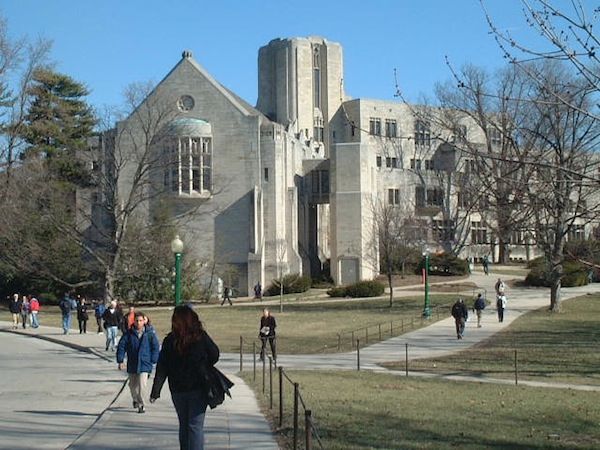Colleges Look to Foreign Students to Fill Budget Gaps

 Indiana University, Blooming Campus
Indiana University, Blooming Campus
Enrollment by foreign students in American universities is growing, up 6 percent since last year. The development follows consistent upward growth in the number of international students arriving in the US in the last few years. Many universities have been hit hard by state budget cuts and are accepting more foreign students because they pay full out-of-state tuition.
Peggy Blumenthal, of the non-profit Institute of International Eduction which issued a recent study on the increased number of international students, says that universities "really are starting to realize the tuition from international students makes it possible for them to continue offering scholarships and financial aid to domestic students." The increase also demonstrates that an education from an American university remains heavily valued overseas.
The IIE report notes that foreign students contribute more than $22.7 billion to the American economy, according to the US Department of Commerce. These positive economic impacts carry over in the long term, as students complete their educations and offer their skills in the US job market or maintain mutually beneficial business relationships with American counterparts. The report states,
Students from around the world who study in the United States also contribute to America's scientific and technical research and bring international perspectives into U.S. classrooms, helping prepare American undergraduates for global careers, and often lead to longer-term business relationships and economic benefits.
Although international students do provide more revenue for colleges, they can also incur additional costs for universities needing to provide international advising and supplemental English instruction. For now, the benefits seem to out way the costs as international students arrive in higher numbers each year.
According to the IIE study, most foreign students come from China, India, South Korea, Saudi Arabia, and Canada. China sends the most students, at 158,000, while Saudi Arabia has seen some of the fastest growing numbers, increasing student enrollment in the US over 50 percent since last year.
A recent study at Indiana University showed only 87 Chinese undergraduates enrolled at their Bloomington campus over the last 5 years, but this year alone they enrolled a staggering 2,224. Indiana University charges non-residents $31,484 for tuition, compared to $10,034 for in-state students.
Accepting more international students into US university programs seems a viable fiscal panacea to the higher education budget crisis, whilst fulfilling high demands for an American education.


